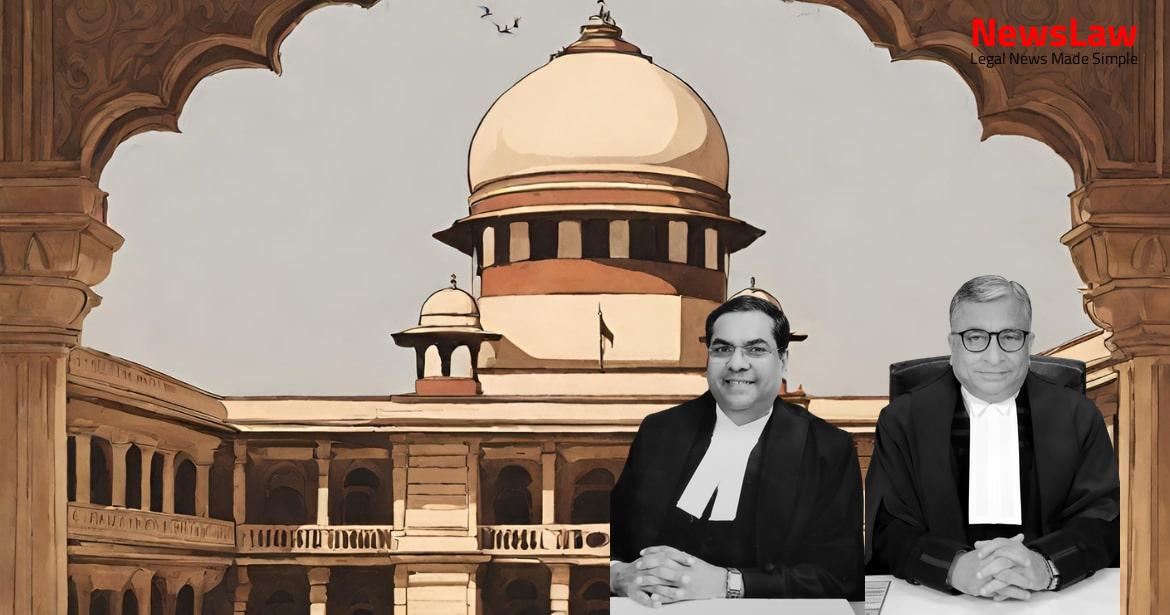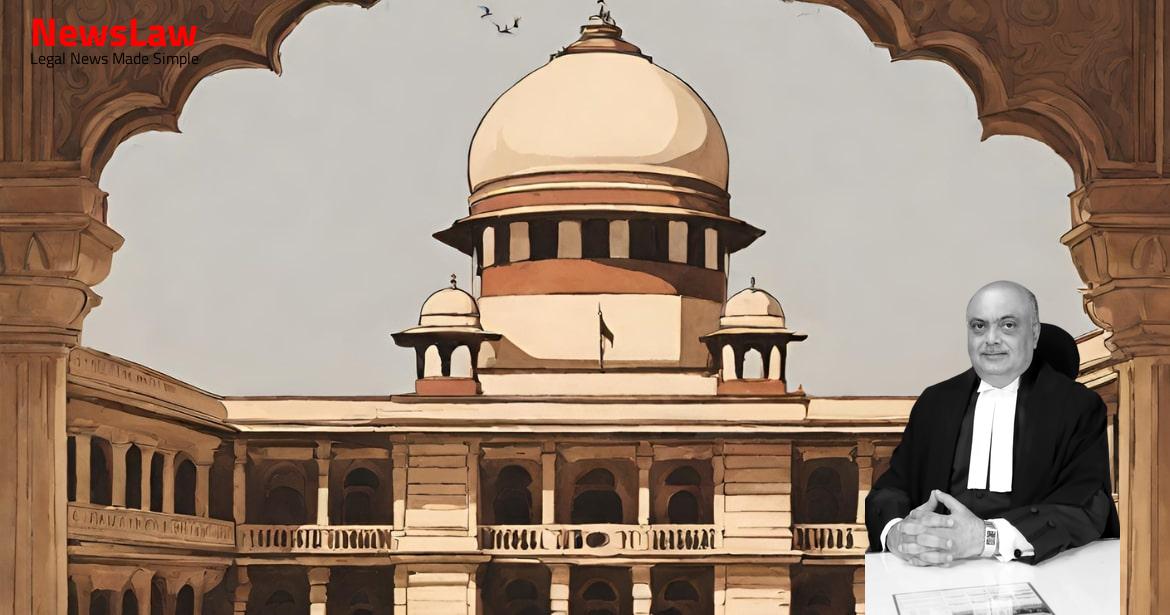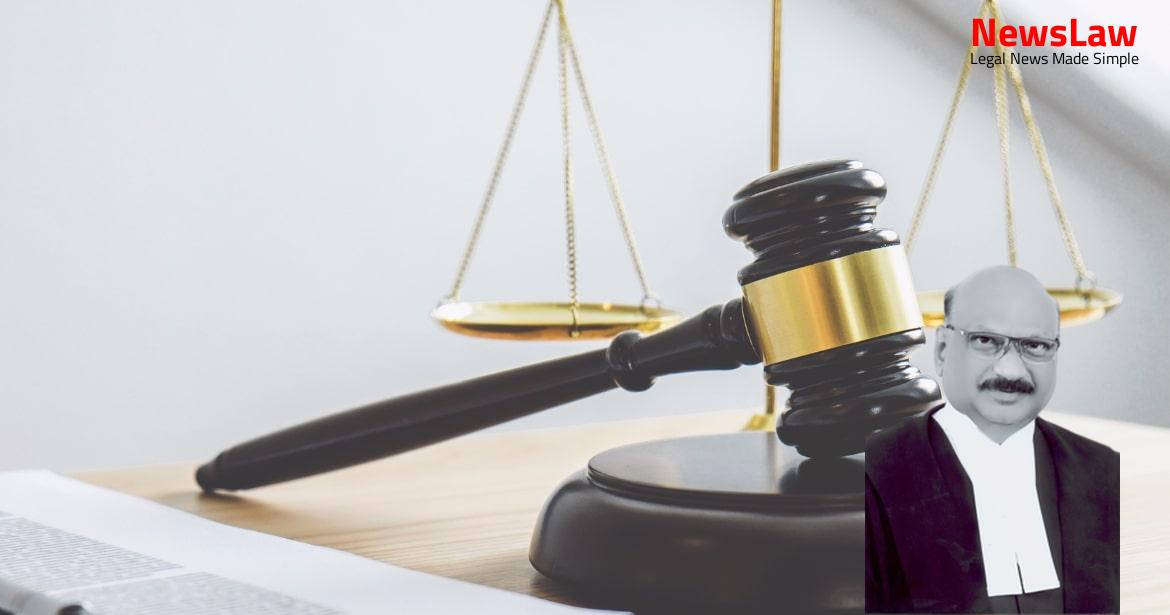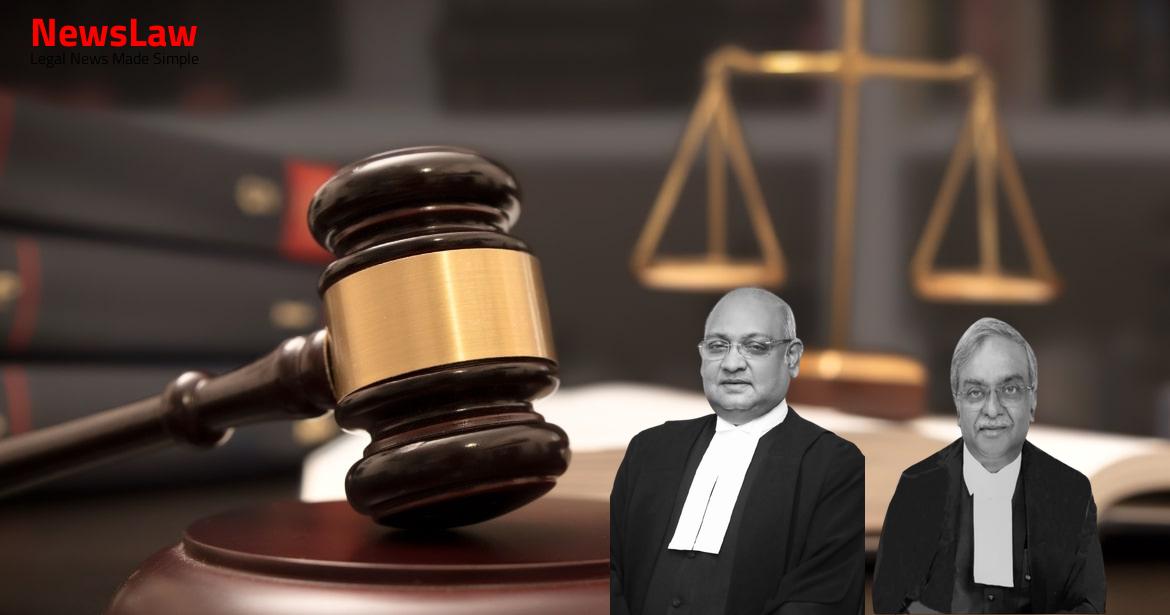In a recent landmark judgement by the Supreme Court of India, the sentences for the accused in IPC offences have been modified. The case involved a petition for sentence reduction by the respondents-accused. The court considered various factors including the nature of the offence, the period of sentence already served, and the first-time offenders’ status. Stay tuned to know more about this crucial legal development.
Facts
- The High Court partly allowed the appeal and reduced the sentence for the respondents-accused to the period of 4 days already undergone, but increased the fine by Rs. 1500/- each.
- The original sentence by the Trial Court was 3 years rigorous imprisonment and a fine of Rs. 250/- each for the offence under Section 326 read with Section 34 of IPC.
- In case of default in paying the fine, further rigorous imprisonment of 6 months was imposed.
- Additionally, they were sentenced to undergo 1 year of rigorous imprisonment and a further fine of Rs. 250/- each for the offence under Section 452 of IPC.
- All sentences were to run concurrently as per the Trial Court’s judgement.
- The respondents-accused challenged only the quantum of sentence imposed by the Trial Court in their appeal to the High Court.
- The High Court reduced the sentence to the period already served for the offences under Section 326 and Section 452 of IPC.
- The prosecution’s case involved the respondents-accused barging into the complainant’s house with weapons as reported by the complainant on 15.04.2008.
- Respondent 1 and Respondent 3 were carrying axes, while Respondent 2 and Respondent 4 were carrying sticks.
- The respondents-accused asked the complainant why he had not kept his cow tied.
- Respondent 4 exhorted the other respondents to attack the complainant and others present.
- The respondents-accused attacked the complainant and others, causing various injuries.
Arguments
- The learned counsel for the appellant-State argued that the High Court did not consider the gravity of the offence and the fact that the accused had served only 4 days in prison.
- The learned counsel for Respondent No.1 contended that the High Court’s decision was correct and should not be interfered with.
- The High Court’s reasoning for partly allowing the appeals of the accused was briefly stated with minimal explanation.
Also Read: CRPF Act: Validity of Rule 27 for Compulsory Retirement – Case of Head Constable vs. CRPF
Analysis
- The High Court considered the nature of the offence committed by the respondents.
- It took into account that this was the first offence of the respondents.
- The period of sentence already undergone by the respondents was also a factor in the decision.
- The High Court made its judgment based on the considerations mentioned above.
- The trial court’s reasoning in sentencing is crucial as it connects the general punishment for the offense with the specific facts of the case.
- Reasons for sentencing must be provided to ensure fairness and accountability, especially when the accused’s liberty is at stake.
- The lack of detailed analysis and reasoning in the High Court’s order justifies interference by the Supreme Court.
- The injuries caused in the attack were incised wounds and bruising, with no evidence of permanent damage.
- Factors like bodily integrity, material loss, humiliation, and privacy breach determine the seriousness of the crime.
- The age, role, and actions of the accused, as well as the motivation behind the offense, must be considered in sentencing.
- Sufficient discretion is necessary for judges in sentencing, as a strict fixed punishment approach may not be effective.
- The impact of sentencing on the efficacy of the criminal justice system is significant, highlighting its importance in maintaining societal order.
- The judgment considers the fact that the crime occurred in 2008.
- The respondents-accused were initially ordered to undergo four days of jail term with a fine of Rs. 1,500/-.
- It is emphasized that the punishment must be enhanced to be commensurate with the guilt of the respondents-accused.
- The judgment notes that this was the first offense committed by the respondents-accused.
- The motive behind the crime is stated to be trivial.
- The judgment highlights the need to treat this crime differently from other objectionable situations like police atrocities.
- The case of Yashwant v. State of Maharashtra AIR 2018 SC 4067 is referred to for guidance.
Also Read: DAMEPL vs. DMRC: Curative Petition and Arbitral Award Restoration
Decision
- Respondent No. 4 sentenced to rigorous imprisonment for 2 months and fine of Rs.50,000/- for offence under Section 326 of IPC read with Section 34 of IPC
- Respondent No. 4 to pay a fine of Rs.25,000/- for offence under Section 452 of IPC
- All sentences to run concurrently
- Respondent No. 4 to be taken into custody immediately to serve the sentence
- Appeal partly allowed and impugned order of the High Court modified
- Respondent Nos. 1, 2, and 3 sentenced to rigorous imprisonment for 3 months and fine of Rs.75,000/- for offence under Section 326 of IPC read with Section 34 of IPC
- Respondent Nos. 1, 2, and 3 sentenced to rigorous imprisonment for 3 months and fine of Rs.15,000/- for offence under Section 452 of IPC
Case Title: THE STATE OF MADHYA PRADESH Vs. UDHAM
Case Number: Crl.A. No.-000690-000690 / 2014



